This week for my Grand Adventures interview, I chat to Jamie from Only Bloody Human.
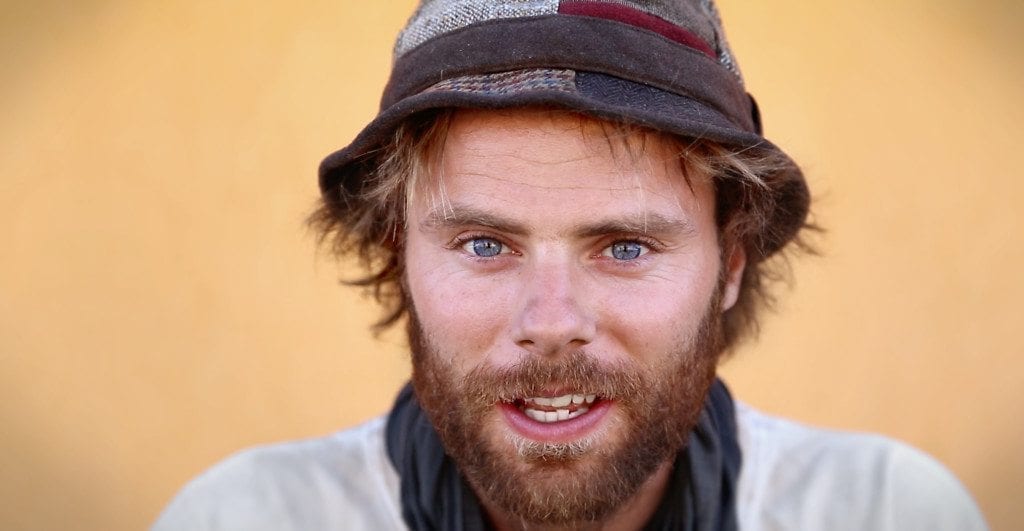
Alastair: I particularly wanted to talk to you because of the lifestyle you have adopted since your big adventure, but first of all can you give us an insight into some of your earlier travels?
Jamie: Sure thing. I’m quite enamoured by the method of hitchhiking; it forms a big portion of what I’mve been doing, and is by a huge margin, my preferred method of moving. I guess I’ve hitchhiked now around 32,000 kilometres so far in my life, bringing me into all sorts of terrific mischief. Perhaps the most defining journey was from England to South Africa via the Middle East. Another that stands out would be crossing South and Central America in a similar fashion, plus a few others in between around Asia. Oh, and a few years back I rode a hilarious little 250cc Chinese knock-off Harley across China– that was certainly memorable. So chiefly, solo over-landing is what I’m most thrilled to be doing – it makes me smile and cry and smile some more.
Alastair: Brilliant. So the big trip you did to South Africa by hitchhiking, tell us a little bit about that.
Jamie: Well, it was born out of general yet rather deep-rooted frustrations. I was a 22 year old, bored stupid but otherwise, eager and hungry graduate. I’d just returned to England from a previous journey, its buzz was already waning, and my prospects were muddled. One evening, something just broke. Out came the Atlas, and the following morning, I walked to the end of my street, stuck my thumb out, and pretty much, off I popped.
Alastair: You started from home?
Jamie: I did indeed, well, technically, the house I was brought up in. Thanks Mum.
Alastair: Brilliant.
Jamie: You know how it is though right Alastair? After returning, once you’ve seen the people you wanted to see, scoffed the things what you’ve dreamed of scoffing and trimmed back all that crazy hair that has taken over your head, the reacquaintance with normality can actually be quite alarming. Yet you fall back into those tired routines so quickly; the transition is rapid and unnerving, and you lose the identity you’ve so preciously formed. I didn’t want to loose him; I wanted to break out dramatically, and with juvenile immoderation.
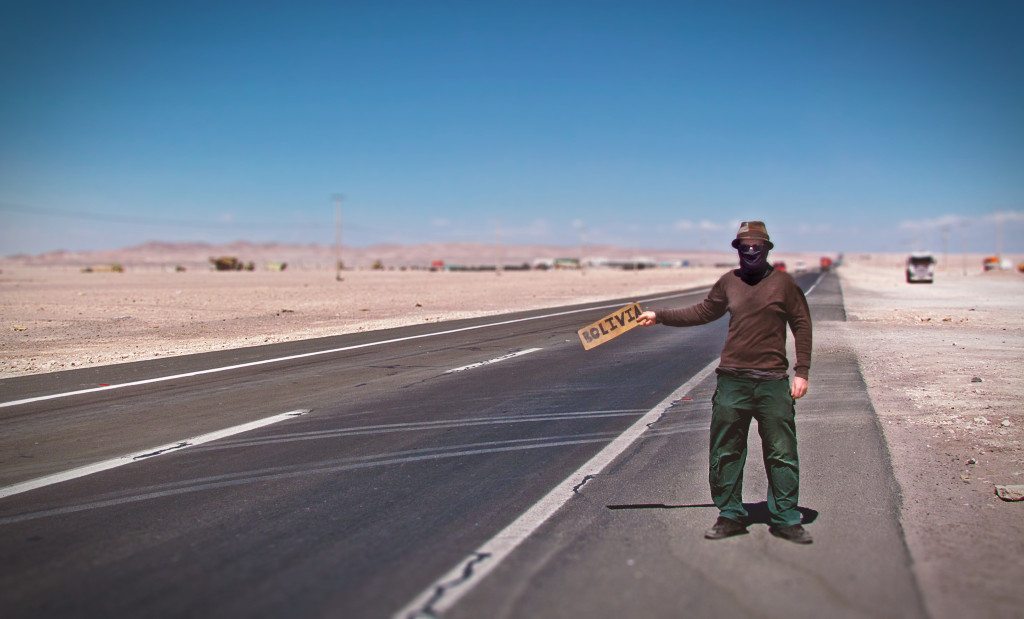
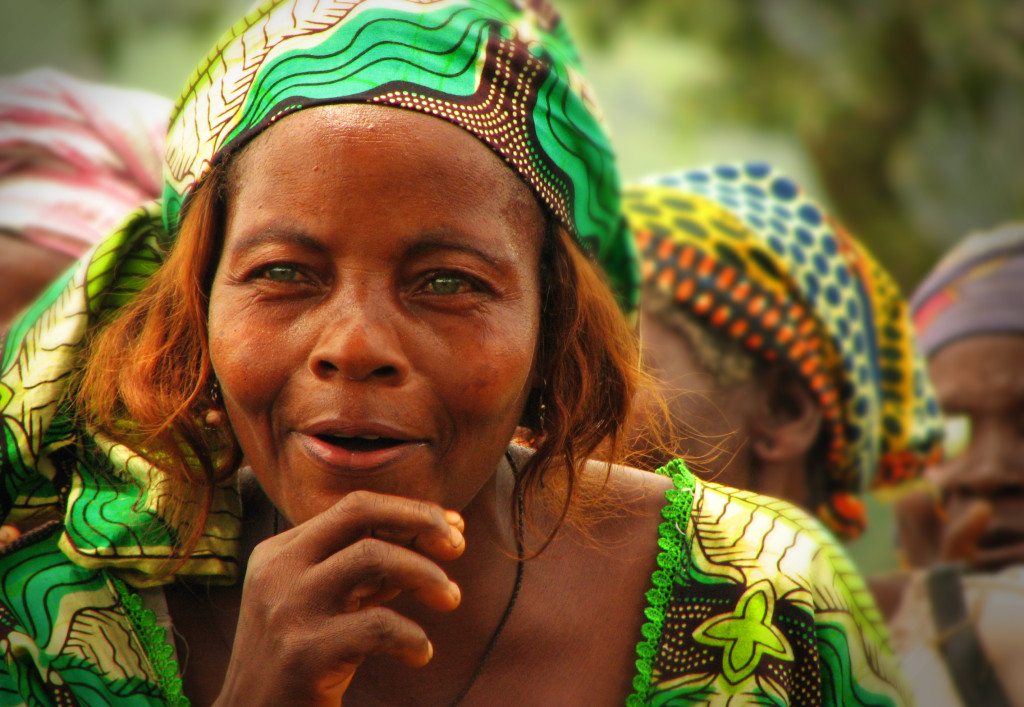
Alastair: What was ‘real life’ likely to hold? What sort of path were you heading down?
Jamie: With big aspirations, I was focused on making my way as a filmmaker or designer, and therefore, all signs pointed towards London, which wasn’t massively attractive. I’mm not keen on city living at the best of times – a familiar problem for many I’m sure.
Alastair: So you stuck your thumb out and hitchhiked to South Africa. How long did it take you to get there?
Jamie: It was about a year or so, for the whole journey from North to South with a long stint in the Middle East.
Alastair: That is slow. I cycled there quicker than that!
Jamie: Ha, I know. The actual days of thumbing themselves were, I think, 36 or 38 days actually on the move, cutting down the kilometres pretty quick when needed.
Alastair: That was fast!
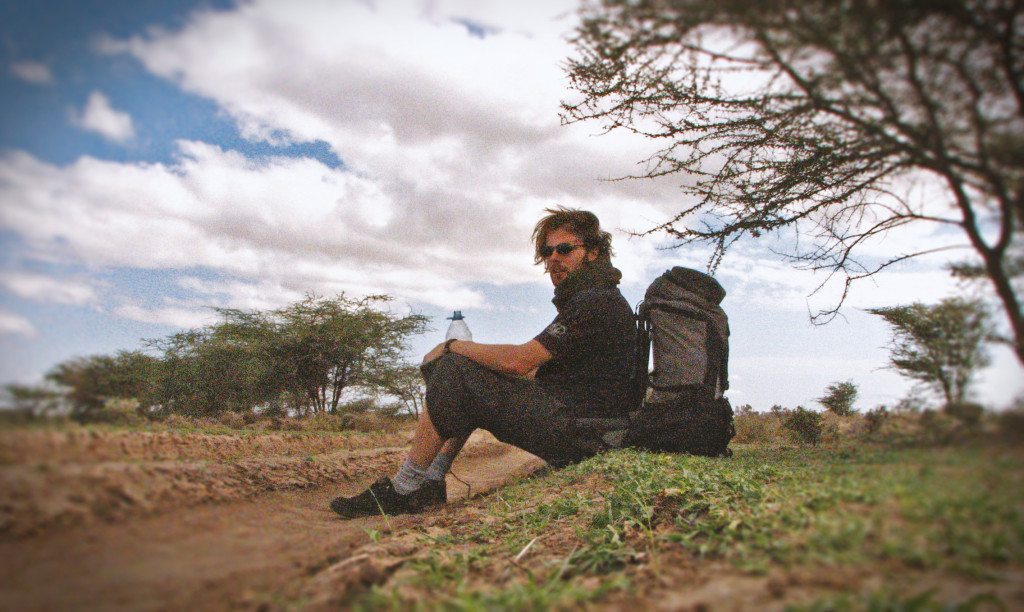
Jamie: Yes, you could do it quickly. If you actually wanted to do the journey quickly, you could knock it out in a month, especially if the ‘mission’ element is your driving force. What was really nice at the time though, was that I was rich in the most valuable of currencies – liberal time. That allowed me to move super slow, and I only moved on from a place when it stopped being a stimulus. If I found a spot I liked, be it a village or at times total isolation in the desert, I’d stay and settle in for many weeks. When my gut spoke, and it was time to move on, I just walked to the edge of town and stuck out my thumb again. There’s a secret beauty in that I think.
Alastair: I love that: the concept of the road being almost like a magic carpet that could just take you anywhere.
Jamie: That’s it. And you know, I didn’t set out to hitchhike all the way to South Africa. That wasn’t the deal. It actually came about because I wanted to hitchhike to Syria – that was my goal – it seemed within reach. Just to go there and have a look around. Maybe validate internal scepticisms towards modern mass media; attempt to loosen the grip they undeniably held over my worldview. After passing time in Syria, hitchhiking had manifested into something bigger, and after an uprising in Hama, all signs pointed South.
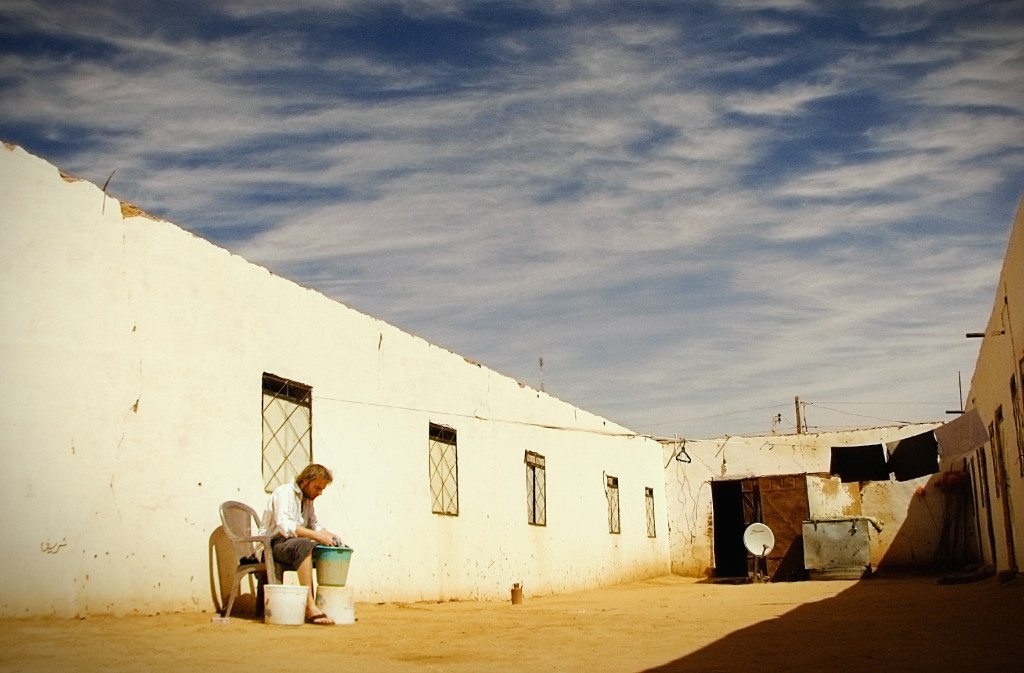
Alastair: When you look back on that trip now, what is your snapshot of the best things? Was it the places you stopped, or the empty roads in between, or the random people? What were the highlights?
Jamie: Three things quite starkly stand out to me actually, and they all intertwine. One would definitely be some of the ‘nowheres’. There are some places, for instance the frontier lands of North Eastern Kenya, where the Kenyan government have just forgotten the place and the people. When there, you feel you’re completely isolated from all things familiar. The sort of place where you know that without a doubt you’re alone; a place where you could strip down naked and run around shouting like a madman, and the only embarrassment you’d have to live with would be an internal one. So those ‘nowheres’, that absolute disconnect and very personal time to let the mind drift without pressure was very important. And that leads to the second of my big take-aways, the things I started to learn about myself. I learnt I’mm a little bit of an accidental troublemaker – I got arrested 8 times on the whole trip. But not because I’mm a genuine criminal or anything of that sort, but more because I can’t help but question or test or at least engage with the new and exciting elements around me – attempt to see where the true limits of discovery lie. I’m no anarchist, but I do genuinely believe we are surrounded so many useless, ill-considered rules that limit our happiness. Looking back, the lows and the mischief allowed me to see other, more hidden parts of those cultures – many of which became long-term highlights. Lastly, the overall biggest gain of the trip was my first experience of what I can best describe as the ‘slow meditation effect’. Months of relative isolation that allow the mind to process all sorts of under the surface issues, fixations, life traumas or just about any form of unwanted baggage that you don’t always know you’re carrying. With extensive time and no pressure, you just slowly, nearly unintentionally digest it all. As this particular journey drew to its end, I’d become rather comfortable with who I was and I’d found a more profound sense of identity. I was a lot more collected. I was strong. Or at least I felt so. Kind of like the famous Primo Levi quote, haha.

Alastair: That’s good. That’s really nice to hear. Would you recommend hitchhiking as a means of transport to others? Why does it trump, for example, going on a long walk or going on a motorbike?
Jamie: Because by it’s nature, hitchhiking is unpredictable. Standing alone by the side of the road, you make yourself vulnerable and therefore approachable, which often leads to [unusual] situations. What I really like about hitchhiking is the mutual audacity of it. You [the hitcher] are bold enough to say, “Hey, stranger. Take me with you.” In the same vein, the driver has to be willing to say “Hey, stranger. I trust you. Jump in.” These two personalities types often align, and more often then not, you get along very well. I’ve had amazing conversations on these journeys with all sorts of wonderful, open-hearted people, and it leads me not only to the next destination, but often into a new friendships. Regularly, I would be invited back to that person’s house, I’md meet their family, I’md have dinner cooked for me, sometimes stay the night in some far out village. All sorts of bonus experiences that you’d not have the same access to if you were travelling by bus or other more conventional methods that do not purposefully thrust you into a close and personal situation with another person.
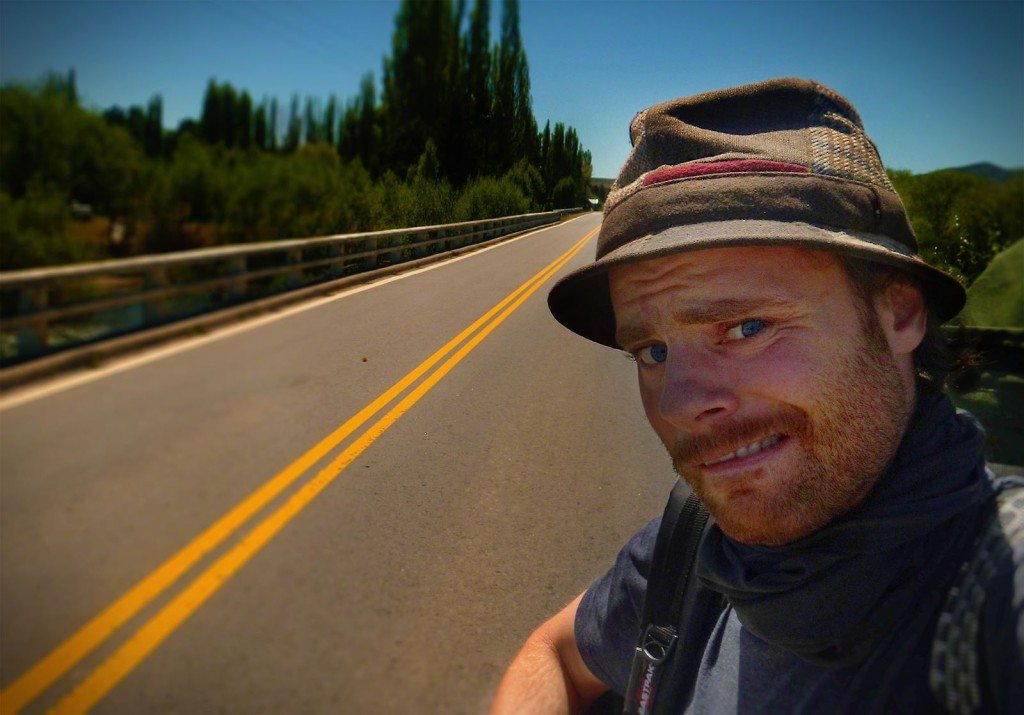
Alastair: Right, that’s really true.
Jamie: The way you engage with the culture is just taken to another level I think.
Alastair: Looking back on that trip now, has it influenced your life since?
Jamie: It has in every way. I look back to that specific trip as a real life changer – it was the launchpad to everything I am now. I can pretty much link every connection I made on that trip to what brought me to where I am now, and I’mm in a very exciting, satisfied place these days!
Alastair: I think one of the things that stops young people of graduate age from heading off for a big adventures is this fear that they ought to be doing what society expects them to be doing at that point: namely getting a job. There are perfectly valid reasons for that. We need money in life. It makes sense to save up for a pension of your own. All those things are very sensible. How did you overcome those worries? And what would you suggest to other young people who are considering it now?
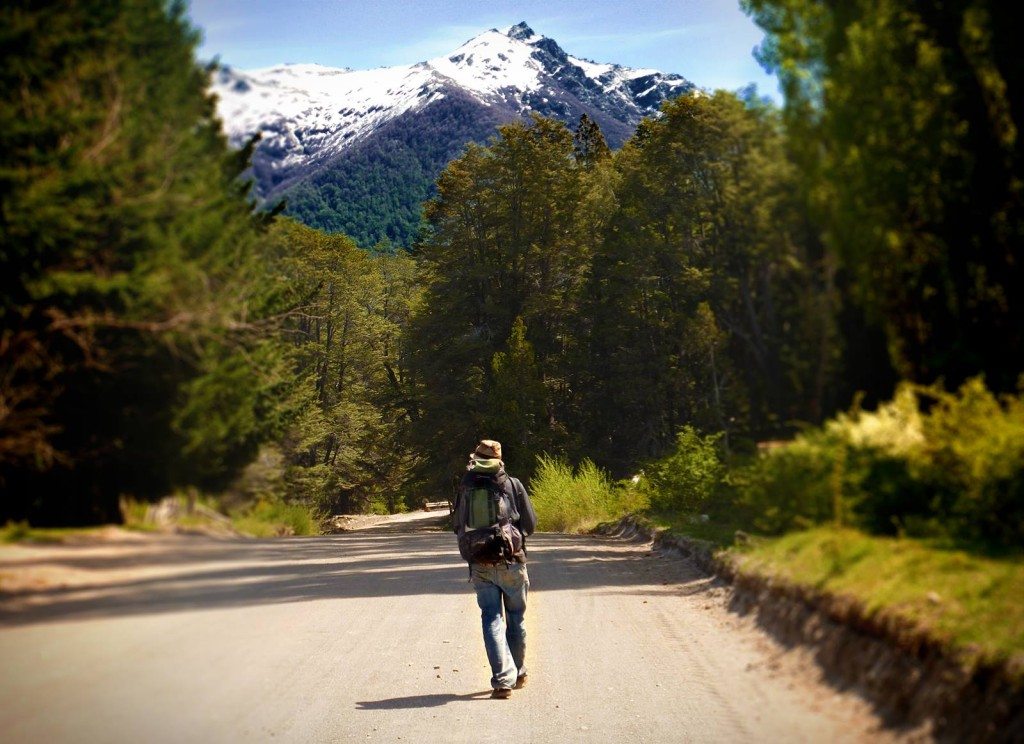
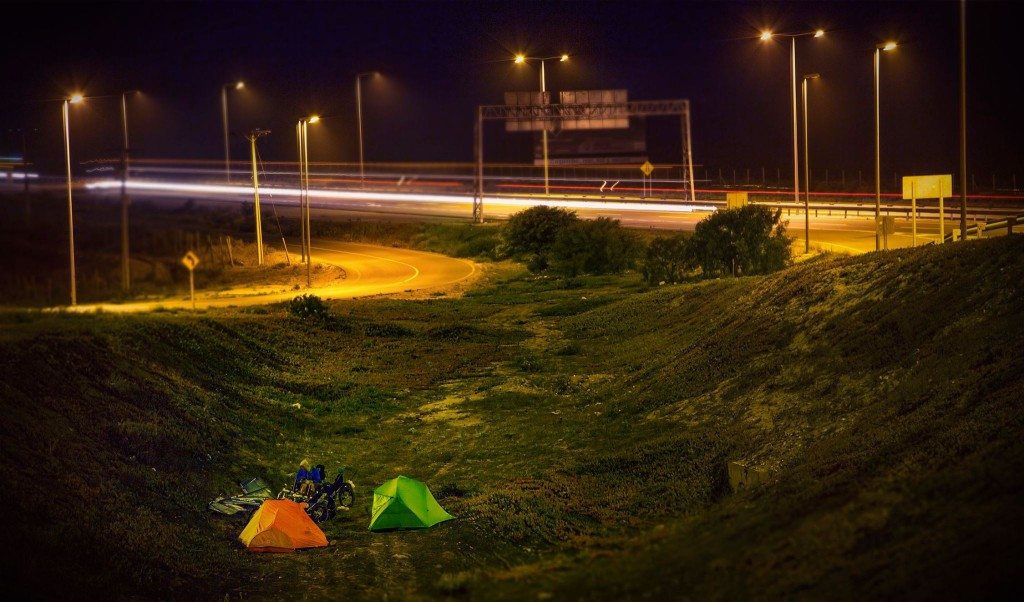
Jamie: That question mark will always looms in some form or another, but I think overcoming it is more a case of logical process. I think that, in this day and age, a degree is important, but it is not the be all and end all. People tend to value experience over paper credentials, and you can get manifest grander, more remarkable experiences from your travels and adventures. This will actually greatly impress an employer, and may trump or at least shine a spotlight on you versus other graduates. So let go of this concept that you need to have a marvellous degree and move straight into work experience after. That common path, in my experience, is a redundant one.
Alastair: And also, that’s what everyone else is doing, isn’t it? It’s hard to rise above the crowd. You need to be different.
Jamie: Indeed. Exactly. To stand out and rise above is to go and be bold and seek unique experiences. That says a lot about your disposition and personality, and employers will definitely sit up and take notice.
Alastair: What are you doing, then, for gainful employment, young man?
Jamie: Personally, this makes me very happy indeed. With a touch of pride, I can say I haven’t worked for anyone since leaving England in 2008 and starting that trip, so in a sense, I haven’t been employed. I’mve been self-employed, a freelancer, and I’mm very comfortably finding my way in a few exciting industry spheres. My roots are in filmmaking, and nowadays, I do a fair bit of producing. As of late, I’mve been working some with Discovery Channel, which has just kind of organically developed through working in the travel/adventure and tech industries, and has come my way through experience and word of mouth. Aside from that, I do a bunch of other things to keep things mixed up and interesting: I’m the founder of a couple of start-ups (most notably Only Bloody Human), plus some front-end web development, commercial photography, a bit of import/export here and there, and, digital strategy consulting too. The biggest dividend is that each of these are very flexible, mobile and noncommittal vocations, and allow me to remain location independent. I can’t deny I’ve been quite influenced over the years by the likes of Robert Greene, Tim Ferriss, Ryan Holiday, and find the philosophy of Stoicism truly mind-broadening. I take care to protect my freedom, and that in turn gives me a lot of unbound time to do explore the things that I enjoy doing, and that ultimately cultivate maximum happiness. Working to live, as opposed to living to work you might say.
![]()
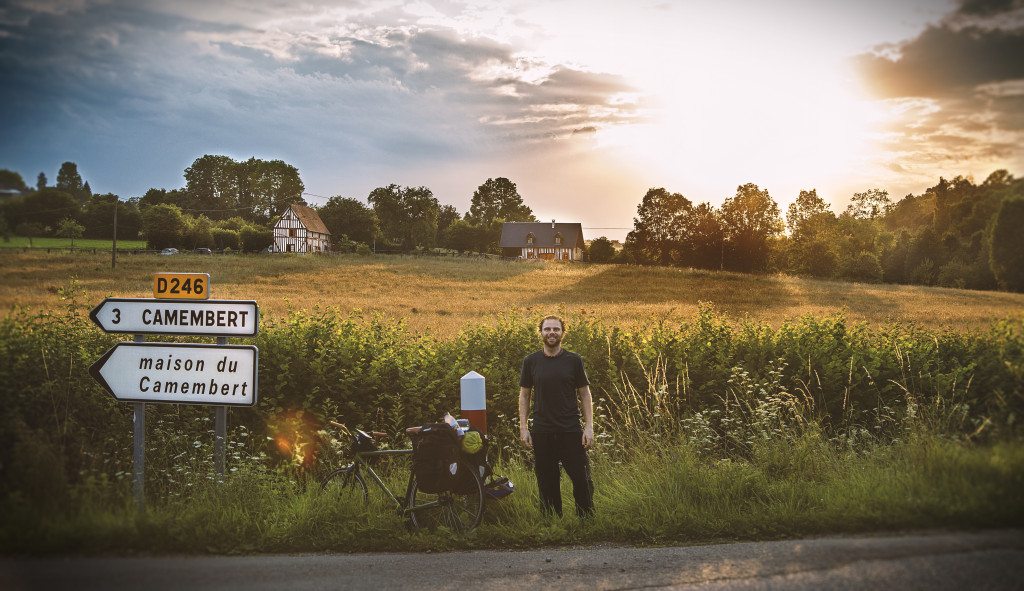
Alastair: Tell me a little bit about being location-independent. I think a lot of careers now – people whose job revolves around a laptop and an internet connection – could work anywhere. They don’t have to be in suburbia in England. Give me a couple of the pros and cons of taking that scary leap to head off to some random country to work.
Jamie: Of course the immediate “pros” are quality of life, and that is key isn’t it? Being out and about in Asia and also here in South America too, your quality of life goes through the roof. You’re cost of living dramatically drops, a nicer place to live is affordable, you often have more contact with nature and new culture, and generally benefit from a more mellow, holistic way of life, I’md say.
Alastair: That’s brilliant. I think there’d be a lot of people sitting behind their computers, wishing they were in Santiago, looking out at the mountains. Can you see the mountains at the moment, or are they smogged up?
Jamie: I can. I’mm just out on my balcony, and I can see them spiking up just beyond the buildings. They are a little bit smoggy today; unfortunately Santiago has a little bit of a pollution issue.
Alastair: It’s a lovely place though, great city.
Jamie: It is a very, very cool place to live, a pretty sweet place to base yourself from, here at the bottom of the world. It’s easy to forget that one hour East you have some of the highest mountains in the world, yet one hour West some of the best surf and coastline, then fours hours North is the worlds dried desert, and heading South there are endless lakes and volcano’s until you crash straight into the wilds of Patagonia. I can’t complain.
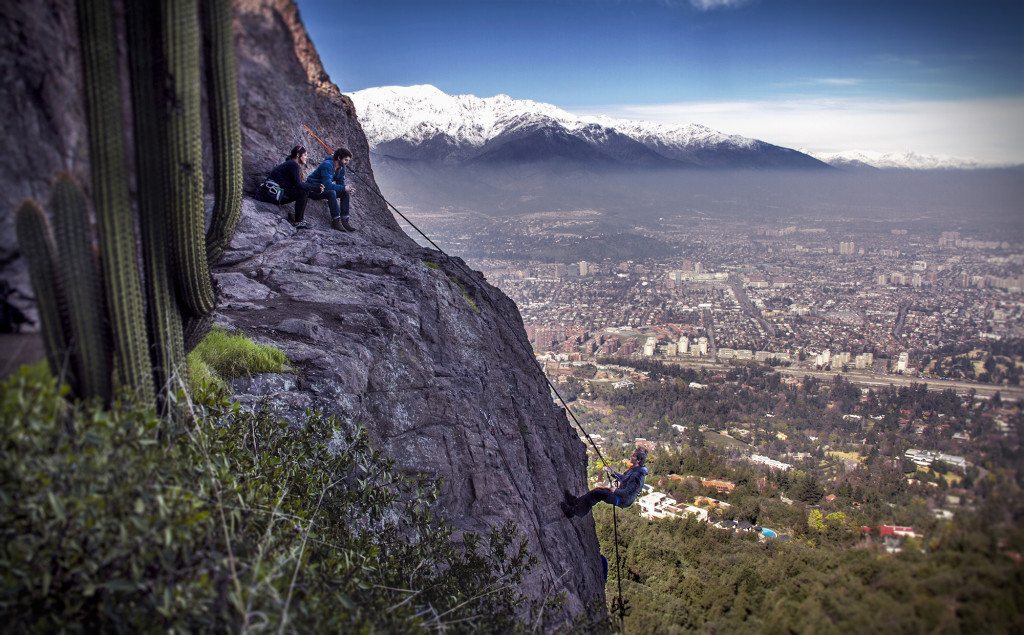
Alastair: OK, so a couple of final questions…
Jamie: Sorry, did you want me to offer some “cons” of the independent lifestyle as well, because I don’t think I did.
Alastair: No, I think people are quite capable of working out the cons for themselves! One of the main aims of this whole Adventure1000 is to help people overcome the cons. Because people are very good at finding reasons not to do stuff, so I’mm trying to tip them the other way. And also I think it’s important to try to be clear that adventure can mean so many different things. It could be cycling to South Africa; it could be hitchhiking to South Africa. It could be going to live in Santiago. All 3 of those have massive merits to them. I think that people shouldn’t be put off according to what flavour of adventure they prefer…
A couple of final questions. My aim is to try to show that you don’t need a lot of money to do it, and that you can do something for under £1000 pounds. So if I was to give you £1000 for an adventure, what would you go do? Anything in the world.
Jamie: What would I go and do? I would follow through on a plan that’s already stewing; that is to go and do a cut-off from society and live away in Siberia for 6 months, and build an interactive documentary around it.
Alastair: Oh, lovely. The warm 6 months, or the cold 6 months?
Jamie: I would probably try to do the shoulder, and have a dose of each, see how I hold up. Ease my way into it, if you know what I mean. I’d imagine £1000 would go a long way towards that actually. It’s just a case of selecting the correct gear to go out there and live sustainably. It’s quite an idealistic approach I know, and no doubt inspired by the likes of Thoreau’s Walden, tales of Everett Reuss and indeed a generous nod to good old Christopher McCandless too. Just to get out there and live a much purer lifestyle, to make a bit of an experiment of it. That would be my ideal right now.
Though if I were to take on more of an adventure or journey, then I’d kayak from England to the Black Sea by the canals of Europe. I’ve just recently brought the plans to start building my wooden expedition kayak later this year – it’s been a plan I’ve had in my head since I was 19. Otherwise, in a few weeks, Dave Cornthwaite has just invited me to cross the Atacama Desert with him on Whikes, and make a short film about it too. I’m pretty pumped I must say!
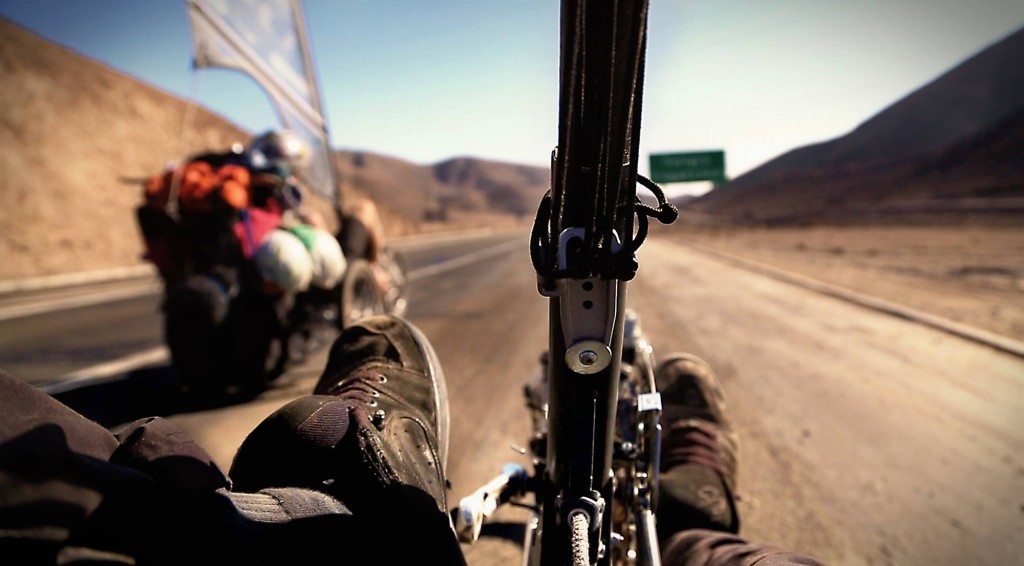
Alastair: I often encourage people to go to Patagonia because it’s one of my very favourite wild places in the world. What would be a good adventure to do down there that wouldn’t cost the Earth?
Jamie: OK, I’mve been lucky to spend a fair bit of time down there – we planted 1000 trees down here last year, but there remains something that I haven’t properly done yet that I must. I’mm hoping to go soon before the winter really kicks in, and that would be to journey the length of the Careterra Austral, the road between northern Patagonia and its southern tip. It’s an ancient, somewhat historically romantic road. It’s unsealed, pretty rough around the edges, and leads you through some of the most spectacular, unadulterated nature, and finishes in Torres del Paine, the true gem of Chilean Patagonia.
Alastair: That’s a brilliant choice. It’s one of my top 3 favourite roads that I’mve ridden in the whole world. A wonderful place.
Jamie: Amazing.
Alastair: Thank you, Jamie.
Jamie: You’re welcome.
My new book, Grand Adventures, is out now.
It’s designed to help you dream big, plan quick, then go explore.
The book contains interviews and expertise from around 100 adventurers, plus masses of great photos to get you excited.I would be extremely grateful if you bought a copy here today!
I would also be really thankful if you could share this link on social media with all your friends – http://goo.gl/rIyPHA. It honestly would help me far more than you realise.
Thank you so much!
Grand Adventures from Alastair Humphreys on Vimeo.
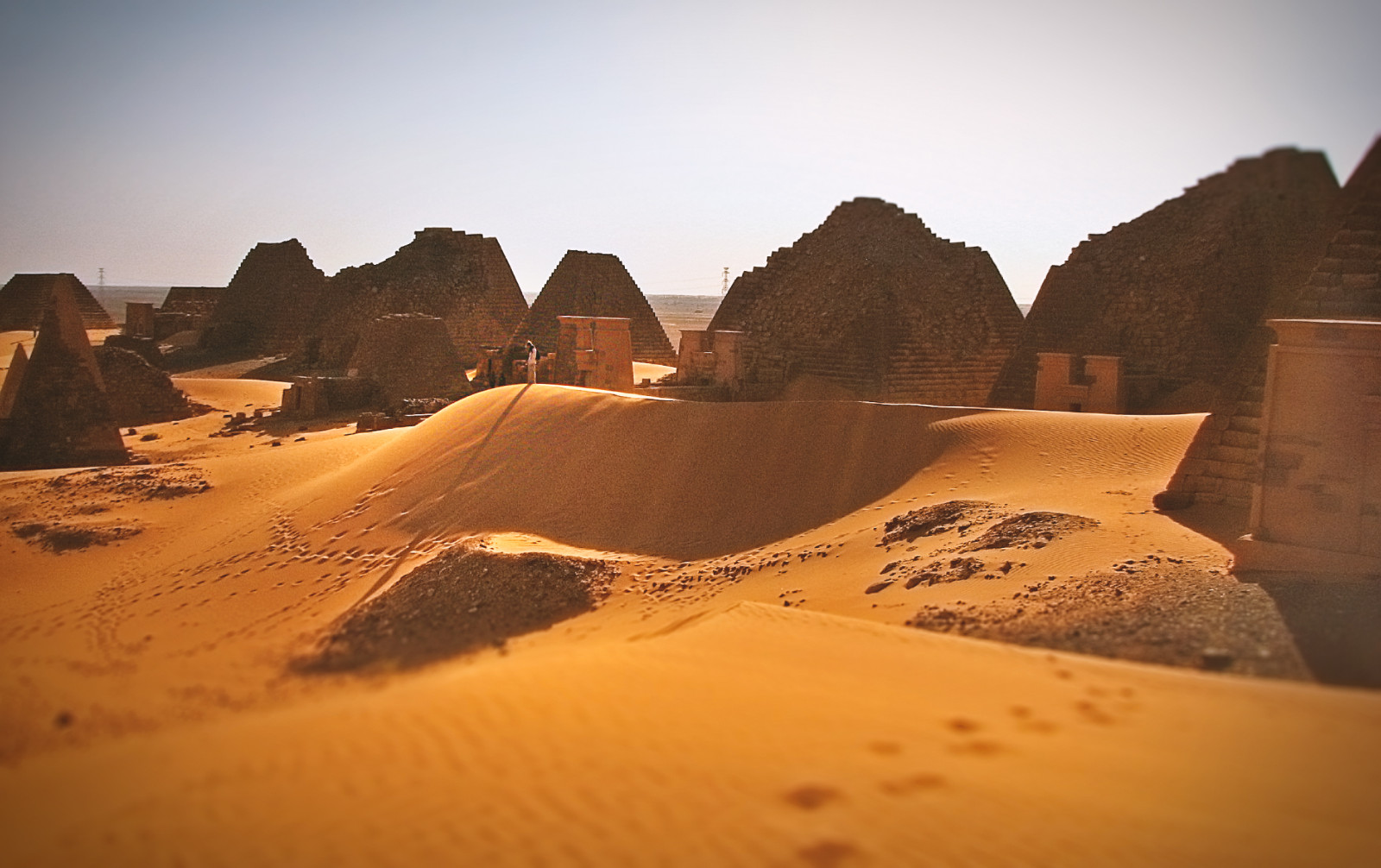
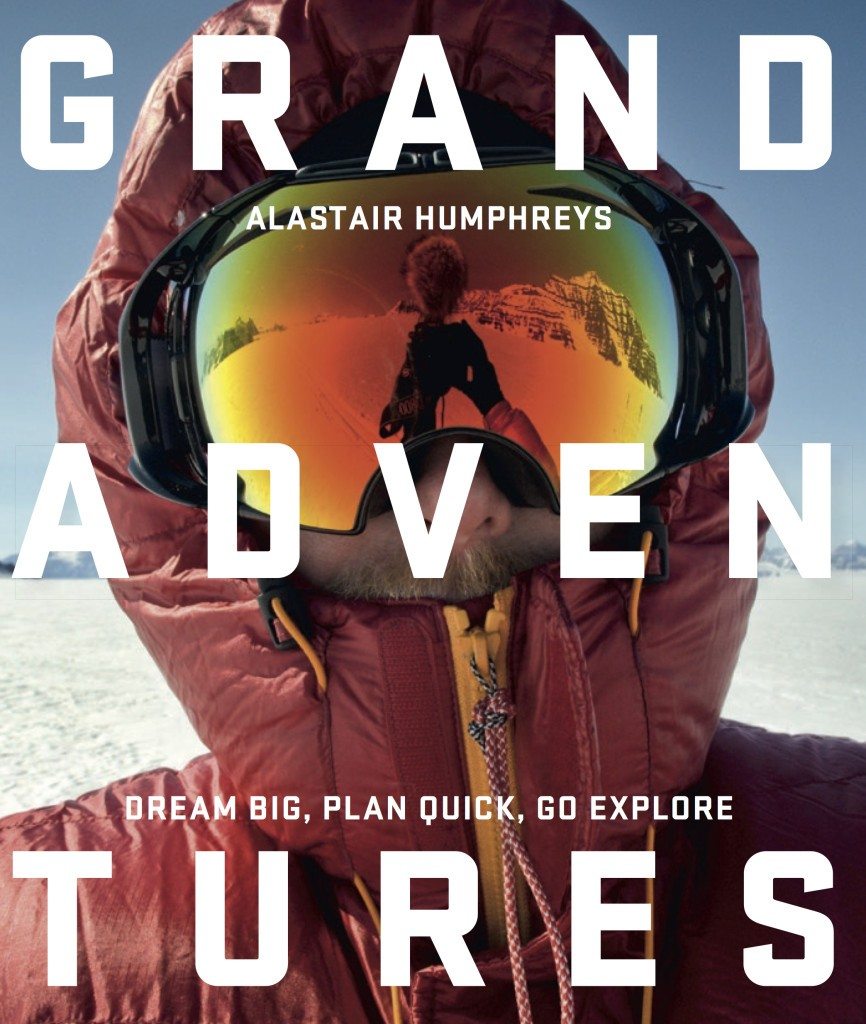

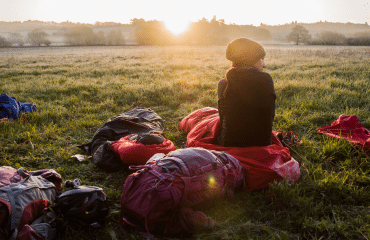
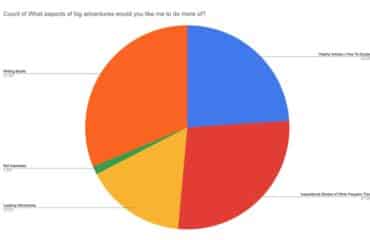
On the subject of spending 6 months alone in Siberia, a French adventurer/author Sylvain Tesson did just that and wrote about it in a book “Consolations of the Forest” just in case you are interested.
Not sure if you are going to read the comments, but if you are where do you think are good/bad places on the coast west of Santiago. Not for surfing (well maybe windsurfing, I can do that), but for kids/beach/holiday/nature.
Hi Jamie – I’m afraid I have no idea. Sorry!
@Jamie – I would say great spots for surf, wind and families would be either Maitencillo or Matanzas, and both are within 2 hours of Santiago 🙂